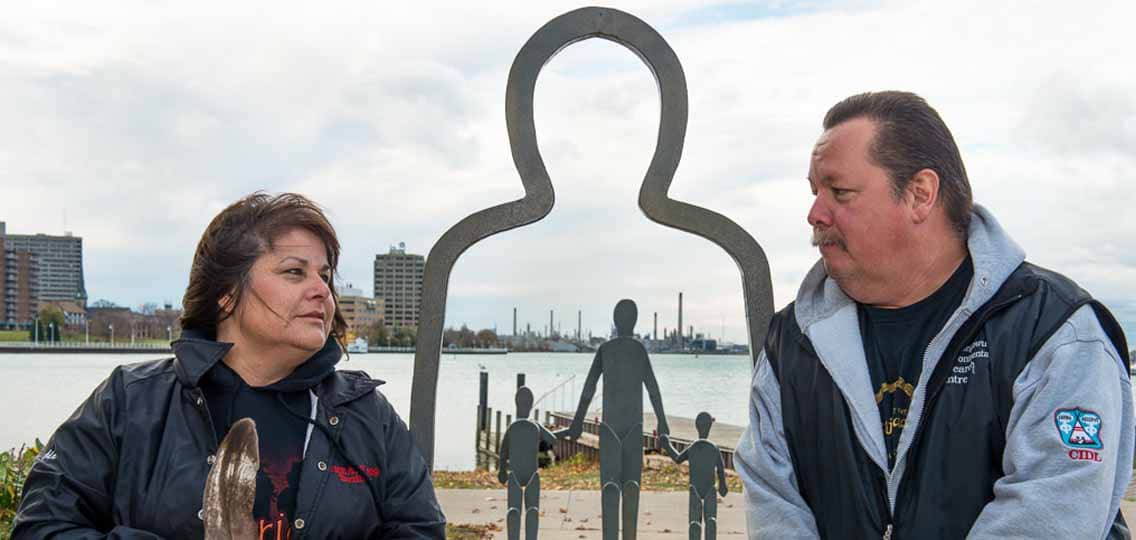The Application for Judicial Review, filed on behalf of Aamjiwnaang First Nation members Ada Lockridge and Ron Plain, alleges the Ontario Ministry of the Environment’s (MOE) ongoing approval of pollution in Sarnia violates their basic human rights under sections 7 and 15 of the Canadian Charter of Rights and Freedoms – including the right to life, liberty and security of the person, and the right to equality.
“This case is about the connection between pollution, health and human rights,” said Ecojustice lawyer Justin Duncan. “The Charter exists to protect the rights of all Canadians, but right now those human rights are being denied to Ron, Ada and other Aamjiwnaang families.”
The application challenges the MOE’s recent approval of increased pollution from refinery operations in Sarnia. The MOE completely failed to consider and minimize the cumulative effects of pollution resulting from the intensive industry next door to Aamjiwnaang First Nation.
“We’ve been working tirelessly for 8 years now to curb the pollution raining down on our community, but government has been moving at a snail’s pace,” said Ada Lockridge. “We hope our legal case will finally change the situation here.”
Pollution releases in chemical valley include cancer-causing benzene, as well as sulphur dioxide, particulate matter and oxides of nitrogen — chemicals known to cause respiratory and cardiovascular health effects.
“I had to uproot and move my family from our home in Aamjiwnaang two years ago as I couldn’t risk my children’s health any longer,” said Ron Plain. “Pollution has cost us dearly and we feel our community has been treated as a sacrifice zone for industrial development.”
“Every time the government approves new pollution, the risks to Ron and Ada’s health goes up,” said Elaine MacDonald, Ecojustice senior scientist. “The cumulative impact on people in Aamjiwnaang needs to be addressed. Right now it’s like death by a thousand cuts. ”

